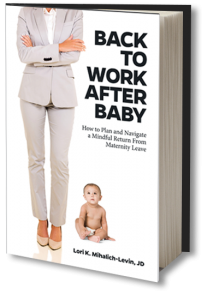 Is it possible to parent and to work with both warmth and power? I’m convinced the answer is yes, and my conclusion began with a conversation with my kiddos.
Is it possible to parent and to work with both warmth and power? I’m convinced the answer is yes, and my conclusion began with a conversation with my kiddos.
After the first day of the school year this past week, my 8 year old (a 3rd grader) asked my 6 year old (a 1st grader) how his new teacher was. “Was she nice or strict?,” he queried. “She didn’t yell at anyone!” my little guy responded enthusiastically. “She is SO nice!”
Then I intervened with an idea that confused them both. “A teacher can be both nice *and* strict,” I suggested, with a twinkle in my eye. “She can make sure you learn, pay attention, and do your work. And also be super kind.” They scrunched up their faces in confusion and went back to what they were playing before the conversation began.
Is “strict” really the opposite of “nice”? Did my kids select these specific words, because all of their teachers were women? Were these elementary school observations part of a larger issue around perceptions of leadership and power?
Warmth and Power at Work
On the recommendation of a friend, I recently read Tara Mohr’s amazing book entitled Playing Big: Practical Wisdom for Women Who Want to Speak Up, Create, and Lead. Wow, it is incredible – one of those MUST-reads for any woman leader. (I’m sure I’ll be writing more about it in future blog posts.)
One of my favorite chapters is called “Communicating with Power.” Her thesis in this chapter is that as women, we often “dumb down how powerfully we come across in order to be perceived as more likeable.”
In our speech and in our writing, we hedge with words like “just,” “actually,” and “kind of.” We use unnecessary apologies and qualifiers like “Let me tell you just a little bit about…,” and “I’m not an expert in this, but…” And we ask questions like “Am I making sense?” instead of making straightforward statements like, “Let me know if you have any questions about this.”
Rather than diminish our power with these habits, Mohr argues that we can “consciously convey both competence and likeability by dropping undermining speech habits while amping up the warmth with which we communicate.”
We can start and end e-mails, for example, with language that communicates a sense of compassion and openness. All without undermining the direct messages we need to send. (Rather than “Does that make sense?,” for example, replace with “I would love to hear your reactions to this. Let me know what you think.”)
In other words, when we write and when we talk, it is indeed possible to convey competence, power, and warmth at once.
Warmth and Strength at Home
I could easily grasp the leadership benefits to communicating with warmth and power at work. But what about at home? Was there value in marrying these two concepts in parenting, too?
Pondering this question led me to an unqualified “yes.”
Now, I’ll admit I have an aversion to pairing the word “power” with “parenthood.” Mostly because what it triggers for me is “power over,” “power struggles,” and “abuses of power.” So I’m re-framing “power” here as “strength.” In setting rules, boundaries, and limits with children, it is, I am convinced, important to be strong. Firm. Consistent. And, of course, warm and loving.
“Oh, just maybe try a little nibble of your broccoli. I know you may not like it, but it’s good for you,” reflects an effort to convey warmth. I’m all for kindness and connection – especially when it comes to broccoli! But does the framing of the request diminish the strength of the broccoli-eating imperative?
What might a strength + warmth reframe look like? Perhaps something like this: “Yes, you must eat your broccoli, if you’d like to eat dessert. Now tell me about the best thing that happened to you today, sweetie. And when you’re done with dinner, we’ll go cuddle on the couch.”
Back to my kids’ commentary. Perhaps what they were really asking was whether my son’s new teacher seemed “mean” or “kind.” If that’s the case, those two things do seem to be opposites.
But strong + kind? Powerful + kind? In my book, those concepts don’t stand in opposition to one another at all.
 If you need more help getting your head in a better place to return to work after maternity leave, join us for the next session of Mindful Return.
If you need more help getting your head in a better place to return to work after maternity leave, join us for the next session of Mindful Return.
Want more practical tips on working parenthood? Check out my book, Back to Work After Baby: How to Plan and Navigate a Mindful Return from Maternity Leave



Excellent post!! I was once told by a male subordinate that I’m “not exactly warm and fuzzy.” While I don’t think it’s my job to make him feel that way, I can agree that I don’t have a ton of warmth in my delivery. I appreciate these suggestions.
Thank you so much for sharing your experience, Sonia – glad the suggestions were helpful!